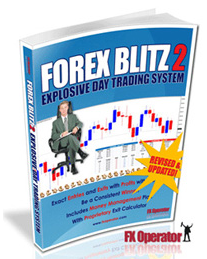Options trading business can be a viable business, and yet it's been tainted by many blacksheep in the Singapore market whereby public associated with options trading as risky, and options traders (especially those who teach as well as trade) are selling dreams to the poor public.
I walked past a bookshop last Sunday and happened to see a book written by a learned author who is selling his options seminar in Singapore, Malaysia and Indonesia, and I admired this fellow who claimed that he has been in trading options for more than 10 years, and he is advocating "non-directional trading". So, I read with interest on this book (and it cost me some S$20) and here is what I found:
a. options selling is better than options buying because 80% of the options expire worthless.
The learnt author said "This is a proven statistical fact. Statistics shows that 80% of options expire worthless. If you buy an option, your chances of winning are only 20%. If you are a seller of an option, your odds of winning are 80%."
First of all, I am not sure where the source of this so-called statistics. Even though this is only my sixth year in options trading business, I already knew this myth some three years ago whereby the so-called "80%" thingy is really a myth.
In an article written by Albert Brinkman published in Summer 2007, he quoted the OCC's 2006 statistics which showed that 31% of the options were unexercised at expiration, 17% were exercised and 52% were closed out prior to expiration. So, where does this 80% thingy come about?
Ok, if you are still in doubt, think about this, just pull out any option chain of your favourite stocks. Regardless of what the stock does, for every put that goes in-the-money, a call will go out-of-the money. So, if someone like this learnt author tells you that 80% of the option expire worthles, you must do one thing - question his math and/ or logic. Ask for official proof rather than hearing him say according to someone ...
b. Always be options seller and never be options buyers
The learnt author also advocates that options sellers will always win and thus we should never become options buyer. True enough, if we sell every option and the stock does not move, the only way we will fail to make money is if all options traded solely for real value. However, stocks do move, and options have to account for that movement through addition of extrinsic value. This value is necessary since if it did not exist, it will be true that options buyers can devise strategies to always make, or at least never lose money.
Options sellers may make money more often than options buyer. However, everything happens for a reason. When sellers lose, they lose far more than what they tend to make on each options sale. On the contrary, buyers may lose more often but each win may return more than several losses. This therefore leads to the point where people tend to confuse something that works most of the time without something that is safe. Obviously the two are not equal. Russian roulette works 5 out of 6 times. With such a high probability, do you want to play now? It is quite safe to cross the road when you see green man. Does it mean it is guaranteed safe? What if you encounter a reckless driver who fails to see the red light or ignores the red light, just shoot it?
So, these two points to me are myths - and if they are not clarified in the books, it is as good as another monkey selling dreams to the public.
Then, what happened today is that I was clearing my old stuff since I am going to move house next month. And I found something that excited me a few years back about options trading, and now to the point where I am, I could not help but laugh harder.
The following represent extracts of a guru's teaching materials, and let's see what is wrong with these statements:
'So, what volatility should options have that allow us to capture the desired movement of the option. We would like to see volatility no greater than 65%'
Guru is teaching us that we should look for THE SWEET SPOT on volatility. So, now many gurus are telling us that there are THE SWEET SPOT on delta, and this guru added THE SWEET SPOT on volatility. If we compare the IV on the options on Pharma stocks and that on the large cap stocks, are we suggesting that we should forget Pharma stocks since the IV can be > 65%. Should IV be a relative number rather than an absolute number? Folks who have our Optionetics Platinum should be able to debunk this myth easily.
'Refrain from buying options that are OTM'"
I did not take this statement out of context but this is exactly what the guru said in the manual. Keep in mind that there is always a trade-off between time and profitability. OTM options exist for its own reason. Just like there is something for options seller to grab and options buyer to grab. Again, the guru is advocating the purchase of only ITM/ ATM options? Folks who have done our two day intermediate class know that OTM options happen for a reason.
'look to purchase ITM or ATM options that have a minimum of 6 to 8 months to expiration. Once we have been filled, we will then look to sell the front month ATM or OTM options.'
The guru advocates this strategy on DIA and QQQQ as strategy for longer-term trades. However, traders should be mindful with how sensitive these longer-term options can be to volatility. So, what if there is a drop of IV on the longer-term option, the traders can be hurt. Folks who have done time spread strategy in a professional way will only that it is far more effective, and mathematically proven that time spread should be constructed using back-to-back basic by selling the front month option and at the same time, buying the immediate next month option, since time spread if done on ATM basis is after theta decay.
So, knowing the open interest of an option being considered for trade, is critical!
It's been again and again debunked by our instructor team that open interest has nothing to do with liquidity. Obviously, we want to get into an option easily in and out but this is governed by liquidity of the option, and it has nothing to do with OI, which is a totally different matter. Liquidity of the option is governed by the bid-ask spread. Are we suggesting that we should not be the first buyer of JNPR Oct option when it is launched next week because OI will be zero? So, go figure.
So, when choosing an options trading course, if the person does not cover the greeks, and when asked why 2+2 must be 4, he fails to explain, you know how "GOOD" that person is.


















No comments:
Post a Comment